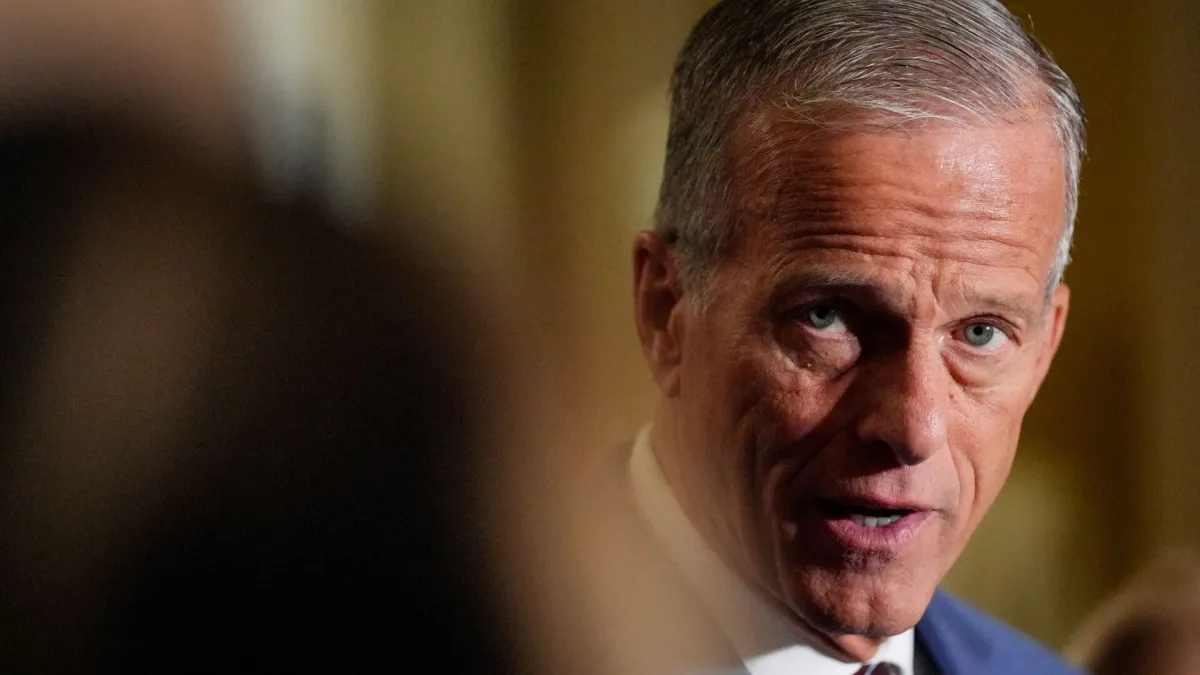
The White House and Senate Republicans have agreed to take PEPFAR, the global program combatting HIV/AIDS, off the chopping block.
The move comes as Senate Republican leaders maneuvered Tuesday to secure the votes they need to pass a White House package of cuts to foreign aid and public broadcasting.
President Donald Trump’s budget office had requested $9.4 billion in rescissions, or cuts to spending previously approved by Congress, including $8.3 billion in foreign aid and $1.1 billion for public broadcasting. The House narrowly passed that package last month, but some Senate Republicans balked at certain cuts, perhaps most notably the funding for PEPFAR, a program started by President George W. Bush.
“I want to strike the rescission of funds for PEPFAR, which has an enormous record of success, having saved some 26 million lives over the course of the program, as well as preventing nearly 8 million infants from receiving AIDS from their infected mothers,” Sen. Susan Collins reportedly said. “So I can’t imagine why we would want to terminate that program.”
Senate Majority Leader John Thune and White House Budget Director Russ Vought told reporters Tuesday afternoon that they had agreed to remove those proposed cuts from the package. Vought said that the remaining cuts would total $9 billion. “There is a substitute amendment that does not include the PEPFAR recission and we’re fine with that,” Vought said.
Collins, who heads the Senate Appropriations Committee, reportedly still has concerns about the rescissions package and the lack of details about what accounts would be cut, but Thune and Vought reportedly signaled that the remaining cuts were on track to pass. Democrats are set to vote against the plan, but Republicans can pass the recissions on their own with a simple majority vote using a process established by a 1974 budget law. Republicans can afford to lose up to three votes from their party and still pass the bill, which must reach Trump’s desk by Friday or the proposed cuts will expire.
Another Republican who had expressed concerns about the bill, Sen. Mike Rounds of South Dakota, said Tuesday that he’ll support the package after reaching a deal with the White House budget office to reallocate some Inflation Reduction Act funding to tribal radio stations.
The House will need to vote on the bill again because of the Senate changes.
Democrats railed against the proposed cuts, warning that they will hurt rural communities that rely on public broadcasting for critical alerts and news. Democrats also warned that the partisan rescissions process undercuts any bipartisan budget and appropriations talks.
“How are we supposed to negotiate a bipartisan deal if Republicans will turn around and put it through the shredder in a partisan vote,” Sen. Patty Murray, the top Democrat on the Appropriations Committee, asked last week. “To suggest, even for a second, Republicans are doing this to address the debt is laughable. And I encourage the American people to laugh at anyone who pretends as much. Because you could cut the equivalent of this bill every single day, for an entire year, and it still would not match the cost of the billionaire tax cuts Republicans passed last week.”
Thune dismissed those Democratic warnings. “The Democrats have suggested that they would shut the government down over us taking up rescissions — that somehow that's going to step on the normal appropriations process,” he said at an afternoon news conference, arguing that rescissions are part of that process. “What we're talking about here is one tenth of 1% of all federal spending. … That’s one thousandth of the federal budget that’s included in this rescissions package.”
Why it matters: The $9 billion in cuts pale in comparison to the roughly $4 trillion in additional debt projected to accrue because of the tax-and-spending megabill Republicans just passed. And the cuts are just a tiny fraction of the trillions in savings that Elon Musk had promised that the Department of Government Efficiency could deliver. Still, rescissions are a key part of the Trump administration’s strategy to slash and reshape government spending, and this package is expected to be the first of several still to come. It would reportedly be the first presidential rescissions package to be approved since the Clinton administration.
What’s next: The Senate began consideration of the package Tuesday ahead of a marathon series of votes leading up to a final vote on Wednesday.